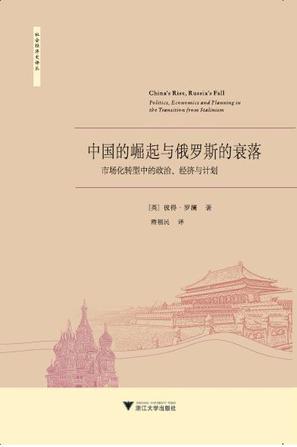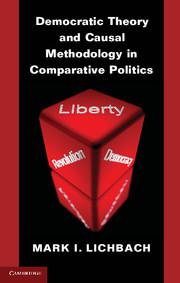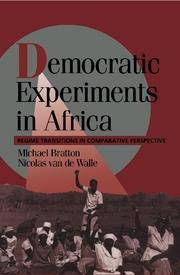-

The Right to Rule
Popular perceptions of a state's legitimacy are inextricably bound to its ability to rule. Vast military and material reserves cannot counter the power of a citizen's belief, and the more widespread the crisis of a state's legitimacy, the greater the threat to its stability. Even such established democracies as France and India are losing their moral claims over society, while such highly illiberal states as China and Iran enjoy strong showings of public support. Through a remarkable fusion of empirical research and theory, Bruce Gilley makes clear the link between political consent and political rule. Fixing a definition of legitimacy that is both general and particular, he is able to study the role of legitimacy as it has been maintained and lost in a diverse selection of societies. He begins by detailing the origins of state legitimacy and the methods governments have used to wield it best. He then considers the habits of less successful states, exploring how the process works across different styles of government. Gilley's unique approach merges a broad study of legitimacy and performance in seventy-two states with a detailed empirical analysis of the mechanisms of legitimation. The results are tested on a case study of Uganda, a country that, after 1986, began to recover from decades of civil war. Considering a range of explanations of other domestic and international phenomena as well, Gilley ultimately argues that, because of its evident real-world importance, legitimacy should occupy a central place in political analysis. -

比较政治:西欧政治与社会
本書為針對歐洲十八國之政黨體系、選舉制度及政府體制之完整分析研究。立基於托克維爾政治穩定之一般性理論,本書亦對歐洲政治公平性之演變有所考察。此外,本書亦蒐集了當今西歐市民社會與國家最新的調查統計數據。本書的重點在於作者所提出的一個突破性觀點:政治機構與政治運作的產出結果,均受到社會結構的影響,作者更站在市民社會、市場經濟以及階級、種族、地域認同、宗教等不同的立場,來描繪西歐政治體系的本質與形式。是一本對西歐政治社會現況有所完整觀察的著作。 —————————————————————— 序言 緒論 新托克維利學派 第一章 從政治社會學到政治制度主義的轉折 第二章 社會分歧 第三章 政黨政治 第四章 政黨與社會結構 第五章 政黨制度 第六章 決策機制:自主性 第七章 決策體系:影響力 第八章 政治議題 第九章 政治穩定 第十章 稅收與社會福利 第十一章 歐洲整合 第十二章 結論 -

中国的崛起与俄罗斯的衰落
这本书系统地分析了中国和俄罗斯改革的差异。在作者看来,俄罗斯的“休克疗法”是失败的,而中国的渐进式改革是成功的。而存在这种差异的原因主要在于两国选择的政策不同。俄罗斯选择了“大爆炸”式方法,即“休克疗法”。“休克疗法”代表了一种正统的转轨理论,认为经济改革的成功需要共产主义政治体制的改变。罗澜认为俄罗斯政策选择上的错误应归咎于西方新古典经济理论家,他们建议莫斯科和国际货币基金组织等机构接受新古典经济学的分析作为给予国际援助的条件的理论基础。中国与之不同,政策选择上没有听从国际组织和新古典经济理论家的建议,而是根据中国的实际自主抉择,“摸着石头过河”,因此获得了成功。 -

Democratic Theory and Causal Methodology in Comparative Politics
-

Veto Players
Political scientists have long classified systems of government as parliamentary or presidential, two-party or multi party, and so on. But such distinctions often fail to provide useful insights. For example, how are we to compare the United States, a presidential bicameral regime with two weak parties, to Denmark, a parliamentary unicameral regime with many strong parties? "Veto Players" advances an important, new understanding of how governments are structured. The real distinctions between political systems, contends George Tsebelis, are to be found in the extent to which they afford political actors veto power over policy choices. Drawing richly on game theory, he develops a scheme by which governments can thus be classified. He shows why an increase in the number of 'veto players', or an increase in their ideological distance from each other, increases policy stability, impeding significant departures from the status quo. Policy stability affects a series of other key characteristics of polities, argues the author. For example, it leads to high judicial and bureaucratic independence, as well as high government instability (in parliamentary systems). The propositions derived from the theoretical framework Tsebelis develops in the first part of the book are tested in the second part with various data sets from advanced industrialized countries, as well as analysis of legislation in the European Union. Representing the first consistent and consequential theory of comparative politics, "Veto Players" will be welcomed by students and scholars as a defining text of the discipline. From the preface to the Italian edition: 'Tsebelis has produced what is today the most original theory for the understanding of the dynamics of contemporary regimes...This book promises to remain a lasting contribution to political analysis' - Gianfranco Pasquino, Professor of Political Science, University of Bologna. -

Democratic Experiments in Africa
Review "...a major work with which all who subsequently write on the subject of transitions on developing countries will have to wrestle. The scholarly effort is also excellent evidence of why the current debate on regional studies versus comparative politics is so empty and sterile. The authors have learned much from the general comparative literature, and through intensive study of a region they are able to contribute much to the general scholarly dialogue. The entire field of comparative politics is enriched by their efforts." Jeffrey Herbst, Political Science Quarterly "...many stimulating ways of looking at democratization." Gail M. Gerhert, Foreign Affairs "Democratic Experiments in Africa is an ambitious and important book that should be read by every serious student of democratization and by every serious student of African politics. Democratic Experiments in Africa...is a major benchmark against which future studies of democratization in Africa should be judged." Joel D. Barkan, Journal of Democracy "This work sets high standards for both empirical and theoretical scholarship which will undoubtedly energize theoretical debates." Dan Ottemoeller, African Studies Review "Democratic Experiments in Africa illustrates the analytic leverage regime typologies offer in explaining cross-national variations in transitions to democracy, Bratton and van de Walle highlight three important ways that the type of nondemocratic regime shapes democratization processes." Comparative Politics Product Description Between 1989 and 1994, almost all of the countries in Sub-Saharan Africa underwent significant political reform, including in many cases the first competitive elections in a generation. How can this wave of political liberalization be explained? Why did some countries complete a democratic transition, while others could not sustain more than limited political reform and others still suffered authoritarian reversals? What are the long term prospects for democracy in Africa? This study constitutes the first comprehensive analysis of democratic transitions in Sub-Saharan Africa.